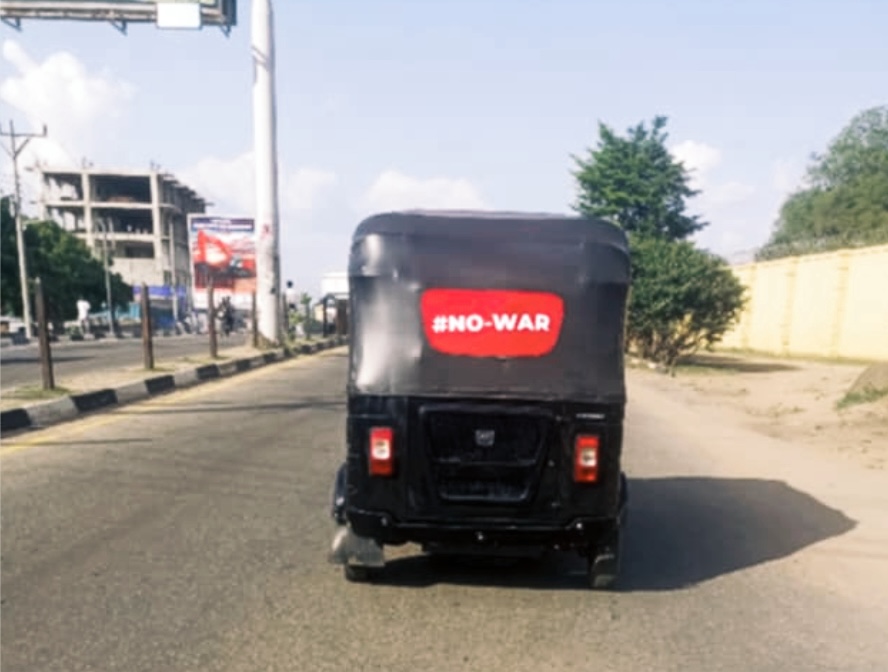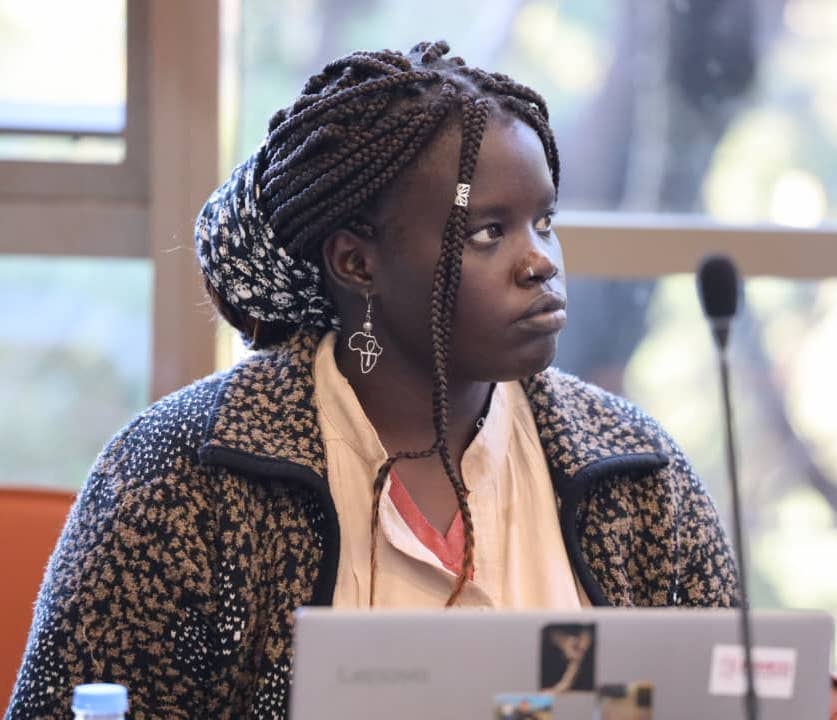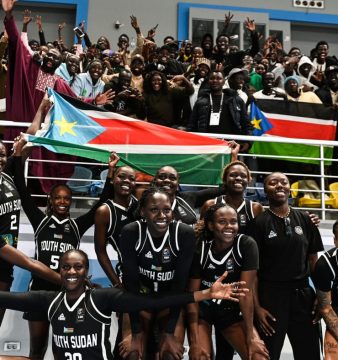[The Picture] No War: A Grassroots Campaign Against War in South Sudan
In the heart of Juba, a black rickshaws, locally called tuk-tuks, rolls down an empty street, its back painted in bold red and white letters #NO-WAR. This seemingly simple image by South Sudanese caricature artist Ladu Solongo, reflects a powerful and growing sentiment among South Sudanese youth: a call to reject conflict and choose peace.
With over 50 tuk-tuks now bearing the same message, this grassroots campaign is not just about transportation, but transformation. Each vehicle becomes a moving protest, a message of resistance, and a daily reminder that peace is a right, not a privilege. Despite the general lack of government tolerance for public opinion and civic expression, this campaign is resonating deeply with people on the ground.
According to Hot in Juba news and media website, South Sudanese peace advocate Samson Mijok Kur launched a grassroots initiative under the hashtag #NoWar, urging an end to violence and a renewed commitment to peaceful coexistence. As part of the campaign, Kur has been painting the hashtag on public transport tuk-tuks to reach commuters and pedestrians across the capital. ‘I am deeply concerned about the ongoing conflicts affecting our nation and the devastating impact they have on our communities,’ he said.
Following its independence from Sudan in 2011, South Sudan descended into civil war in 2013. A fragile peace was reached in 2015, only for violence to resume in 2016. The conflict officially ended when President Salva Kiir and Vice President Dr Riek Machar signed the Revitalised Agreement on the Resolution of the Conflict in the Republic of South Sudan. While not all provisions were implemented, the country enjoyed relative stability thereafter.
However, in February 2025, tensions reignited following clashes between the White Army in Upper Nile/Nasir and the South Sudan People’s Defence Forces (SSPDF). The situation escalated further with the arrest of Dr Machar in March, leaving citizens fearing a return to widespread conflict.
This is not the first time South Sudanese youth have publicly voiced their frustrations. In September 2016, a group of visual artists, poets, musicians and designers launched the Anataban Campaign (Arabic: أنا تعبان, Ana Taban — meaning ‘I am tired’) to confront social injustice through art. Using murals, street theatre, graffiti, and poetry, Anataban encouraged public discourse on government accountability and transparency.
The #NoWar paintings seen across Juba today are a clear message: South Sudanese youth and the people as a whole are tired of war and its consequences such as displacement. The nation yearns for healing and rebuilding, not the reopening of wounds that have yet to close.
500WM Columnist Dominica Amet Joseph Marco is a 26-year-old South Sudanese writer, freelance journalist and feminist/social activist who graduated from the faculty of law from the University of Bahri in 2018. She is one of many who had to flee war in Sudan to finally come and live in her homeland South Sudan. She has written and published articles, stories and poems since 2017. She has worked with and published articles in Aka’bar Alwatan Newspaper in Sudan, Almugif Newspaper in South Sudan, and several other Arabic websites.





